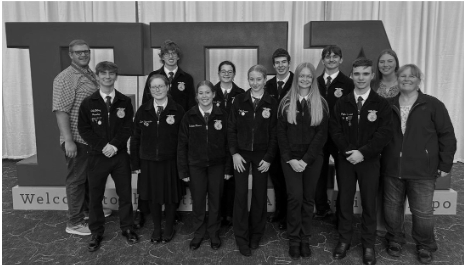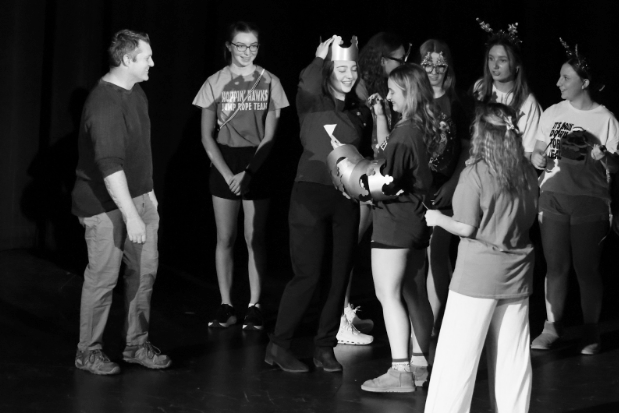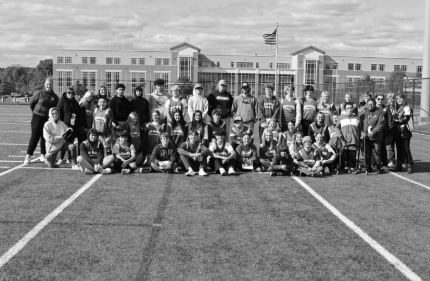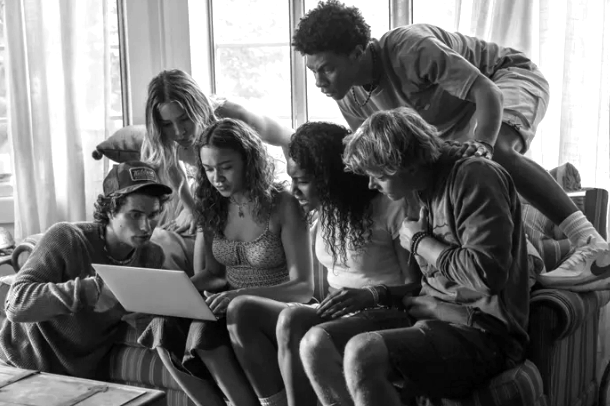AI achieves advancements; Microsoft architect speaks on singularity
February 16, 2023
Moore’s Law states that computers will continue to double in power and half in price every two years that pass. Experts claim Moore’s Law will continue to hold for the rest of our lives. Other experts also claim Moore’s Law no longer applies as of 2022. Who is right?
While computers may not be getting significantly cheaper, the transistor count in computers does double every two years, according to Our World in Data.
Matt Chandler, Azure data and AI architect for Microsoft, thinks Moore’s Law is starting to no longer hold. “We are coming to a point where in conventional computing, it’s hard to keep doubling because transistors can only get so small,” he explains.
Recently taking the world by surprise is the recent improvements to AI tools ChatGPt and DALL-E. Does Moore’s Law apply to AI? Chandler does not believe so. “It’s a slow grind. It just takes so long. [ChatGPT and DALL-E] are our best scientists put together, and it’s amazing, but you’re still able to tell it’s a robot. I think it will take a lot longer than Moore’s Law suggests.”
According to AI News in a video about SINGULARITY, GPT-4–which was just released at the beginning of 2023–will be considered almost as smart as Artificial General Intelligence (AGI). By 2026, AGI will be invented and it will have the ability to simulate real human thinking.
Chandler explains how the GPT-4 referred to in the video and claims to be able to take over most human jobs, is just the ChatGPT and DALL-E we have now. “Some of those claims are so far-fetched, I was laughing,” he says. “I would say [the video is] about 20-30% accurate. However, even the parts I believe are accurate, the dates are off and the claims are exaggerated.”
AI News claims that by 2030, AGI will be completely mobile and be able to automate all human tasks and jobs. On top of this, it will conduct years of research within minutes. After one year, we will have made more technological advancements than we have in the previous 200 years.
Chandler disagrees with this. “Everything we train robots to do in our machine learning is all based on math. The hard part is getting everything that you do on a computer and converting that into real life,” he starts. “Imagine you write the perfect code for a robot to pick up a piece of paper, but when it goes to pick it up, it doesn’t suction. There are all these other pieces to it in the physical world that don’t exist in the electronic world. So that is going to be a challenge for these robots taking over some human jobs.
“When you look at tesla, there’s a lot of machine learning there, but it also makes mistakes,” he explains. “2030 is a bit too early for all of that.” That being said, he still thinks people will be amazed by what they “see over the next couple of years in programming, computers, and chatbots.”
Chandler believes we are far off from AI going mobile. “All of our AI happens on our supercomputers in the back end somewhere,” he explains. “Right now, it’s so resource-intensive just to make simple decisions. We need to get the ability to make those decisions a lot easier so it doesn’t require so much supercomputing power.”
Five years later, according to AI News, no human will be able to keep up with the robots’ level of thinking, and “Singularity” will be achieved. “Is it going to be the end-all-be-all? That’s hard to say. It’s going to be a while out before any of that happens,” Chandler says.
“Where we are right now, is we can have robots that will generate articles, that will write articles, and that can fool you based on its writing style, and it can improve itself,” the architect explains. “I think to say we’ll get to AI singularity where it is beyond the human level of understanding and comprehension, I don’t know, we’re definitely getting there. If you would’ve asked me five years ago I would’ve said no way. Asking me today… it’s possible. We’re getting there, and we’re in the infant stage of it.”
Senior Jeremy Jestel has been interested in the AI Revolution for two years. “At the current rate we are going, I believe we will hit a point where AI processing will be more efficient and innovative than human capability on nearly every metric,” Jestel states. “ChatGPT’s power caught most of the world off guard. This is a low-level display of capability that I believe will continue to exponentially increase until we hit singularity due to competition between companies as well as countries.”
Jestel is concerned about the growth of AI. “The growth of AI is much more dangerous than most understand and far outweighs the possible benefits,” Jestel explains. “AI will slowly take jobs away from workers, starting with creative-artistic jobs and moving on to nearly every analytical and financial field. This is just the start of a continuous trend of job loss.”











